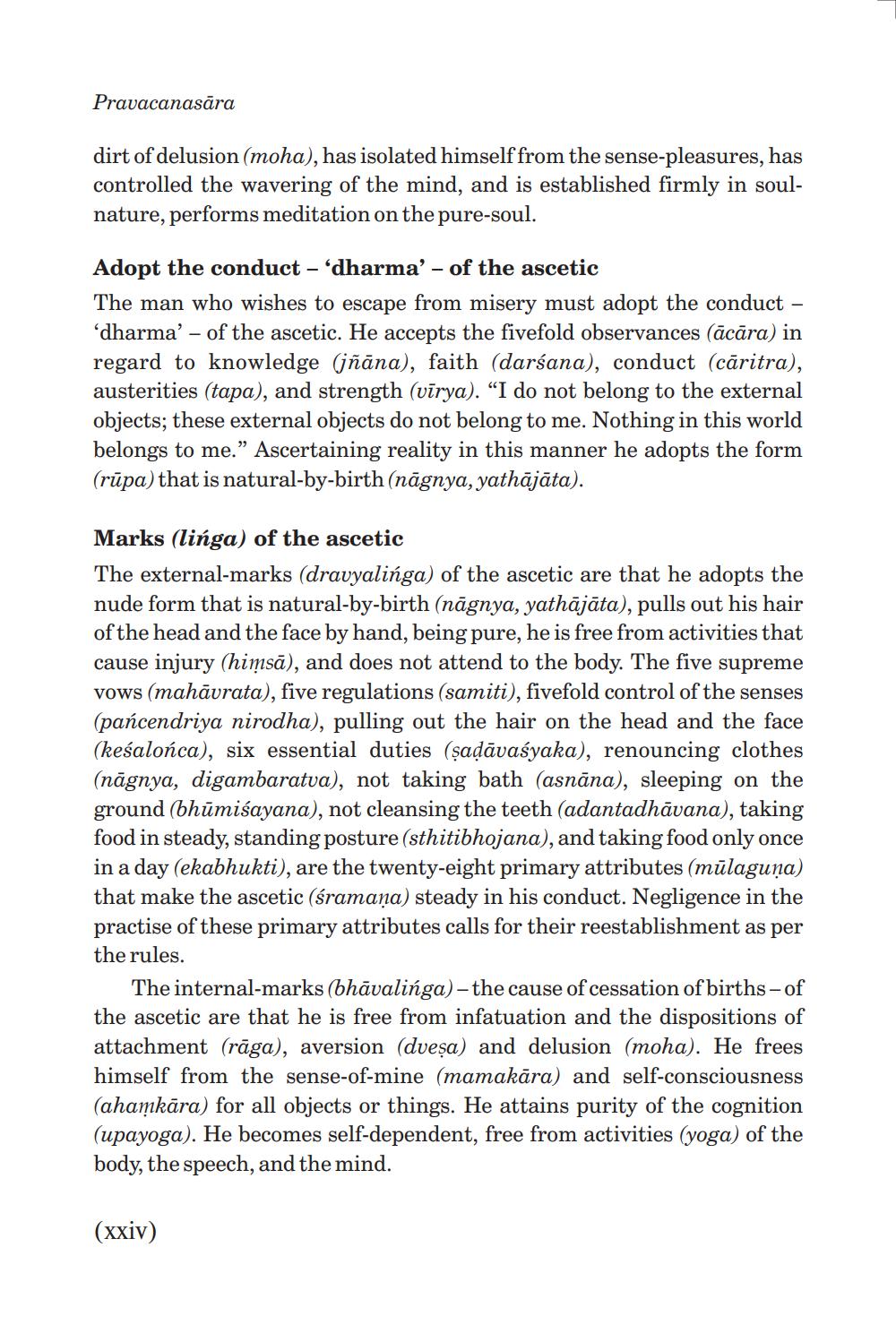________________
Pravacanasāra
dirt of delusion (moha), has isolated himself from the sense-pleasures, has controlled the wavering of the mind, and is established firmly in soulnature, performs meditation on the pure-soul.
Adopt the conduct – 'dharma' – of the ascetic The man who wishes to escape from misery must adopt the conduct - dharma' - of the ascetic. He accepts the fivefold observances (ācāra) in regard to knowledge Gñāna), faith (darśana), conduct (căritra), austerities (tapa), and strength (vīrya). “I do not belong to the external objects; these external objects do not belong to me. Nothing in this world belongs to me.” Ascertaining reality in this manner he adopts the form (rūpa) that is natural-by-birth (nāgnya, yathājāta).
Marks (linga) of the ascetic
The external-marks (dravyalinga) of the ascetic are that he adopts the nude form that is natural-by-birth (nāgnya, yathājāta), pulls out his hair of the head and the face by hand, being pure, he is free from activities that cause injury (himsā), and does not attend to the body. The five supreme vows (mahāvrata), five regulations (samiti), fivefold control of the senses (pancendriya nirodha), pulling out the hair on the head and the face (keśalońca), six essential duties (sadāvaśyaka), renouncing clothes (nāgnya, digambaratva), not taking bath (asnāna), sleeping on the ground (bhūmiśayana), not cleansing the teeth (adantadhāvana), taking food in steady, standing posture (sthitibhojana), and taking food only once in a day (ekabhukti), are the twenty-eight primary attributes (mūlaguna) that make the ascetic (śramaņa) steady in his conduct. Negligence in the practise of these primary attributes calls for their reestablishment as per the rules.
The internal-marks (bhāvalinga)-the cause of cessation of births-of the ascetic are that he is free from infatuation and the dispositions of attachment (rāga), aversion (dveşa) and delusion (moha). He frees himself from the sense-of-mine (mamakāra) and self-consciousness (ahamkāra) for all objects or things. He attains purity of the cognition (upayoga). He becomes self-dependent, free from activities (yoga) of the body, the speech, and the mind.
(xxiv)




